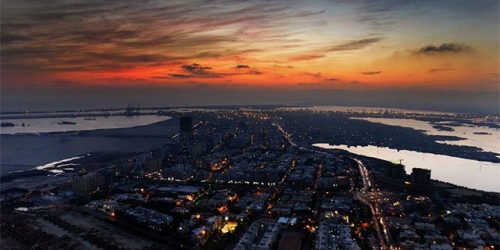Amazingly, the pace of inflation slowed down to 5.7% in January, which was the lowest rate in over two years, due to smooth supplies of perishable food items and abnormally high inflation rate in the same month a year ago.
It was the consecutive fourth month that the inflation pace was on a downward trajectory.
“Inflation continues to decline. January inflation (CPI) is down to 5.7%”, tweeted Asad Umar, the federal minister for planning and development on Sunday -a day before the Pakistan Bureau of Statistics was set to officially announce the monthly bulletin.
Umar further said that the rate of inflation was lower today than when the PTI government was formed. He said that in July 2018 -the month of general elections- the inflation rate was 5.8%.
However, it was not for the first time that the inflation rate eased to that low. In January 2019, the inflation rate was 5.6% and in November 2018, it was 5.7%. November 2018 was also the month when the PTI government had allowed export of 1.1 million metric tons of sugar, which sowed the seed of sugar crisis in the country.
Historically, the inflation rate has usually remained in single digit during the month of January due to better supplies of food items during winters.
During the past 14 years, the inflation rate in January was in single digit nine times in the month of January.
However, January 2020 was the abnormal month when inflation peaked to 14.6% due to disruption of the food supply chain, which caused massive increase in prices of almost all perishable food items.
The 14.6% inflation rate was the highest in the month of January during the past 14 years, showed the Pakistan Bureau of Statistics (PBS) data.
There was a 2.2% reduction in the pace of inflation last month, which was the steepest reduction in the past 10 months.
“More good news on the economic front. Our efforts to reduce inflation are now showing results,” tweeted Prime Minister Imran Khan hours after Umar’s tweet. The premier said that Consumer Price Index and core inflation were “both now lower than when our government was formed”.
“I have told my economic team to stay vigilant and ensure that inflation stays under control,” the premier said.
The 5.7% rate of inflation beat expectations of the Ministry of Finance that had predicted around 7.2% to 8.2% inflation rate for January.
Why sudden drop in inflation rate?
Pakistanis had borne one of the highest inflation in January 2020 when the rate had hit 14.6% on back of increasing cost of food and energy in the country.
This resulted into what the economists call “the high base effect” -an abnormally high or low inflation rate in the same month a year ago. Due to 14.6% high base, the inflation rate in January 2021 went down to 5.7%, according to the economists.
They said that the government could reap more benefits from the high base effects in the next couple of months, as inflation rates were also in double digits during February-March 2020.
The improvement in food supplies was the other key factor. The PBS calculates the inflation index by monitoring prices of 356 commodities in 35 cities and 244 goods in 27 rural markets.
The impact of food inflation was more pronounced in rural areas than in urban centres.
In his tweet, Umar said that the pace of core inflation, being calculated after excluding the prices of energy and food items, also decelerated to 5.4%. He said that prior to PTI government formation, the core inflation was 7.6%.
The core inflation after remaining unchanged at 5.6% for three months also slightly reduced to 5.4%. The government has increased the electricity prices by 17% or Rs1.95 per unit from January to meet a condition of the IMF for restoring the stalled $6 billion bailout programme.







